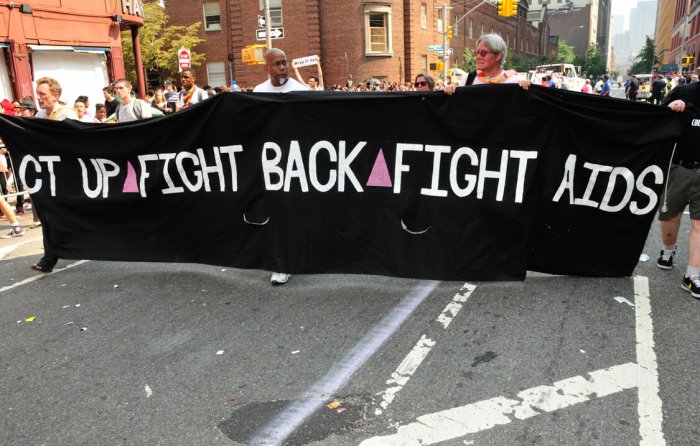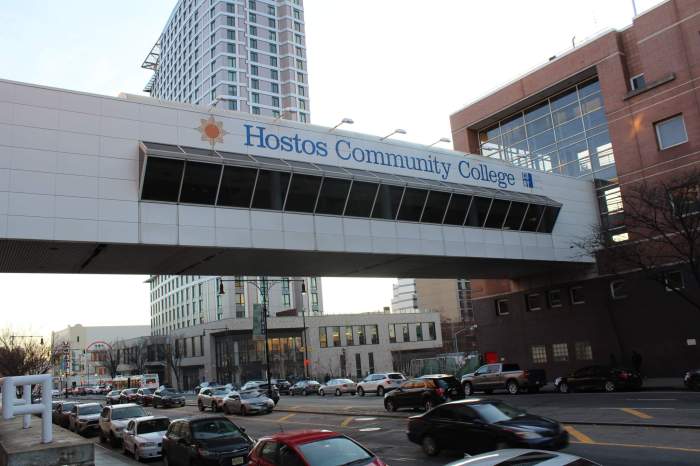New York-Presbyterian Hospital, where Mikhail has been involuntarily committed to a psychiatric ward. | GAY CITY NEWS
Several weeks before Mikhail was involuntarily committed to a psychiatric ward at New York-Presbyterian Hospital, his father noticed a change in him.
“His behavior, his communications with me became very erratic and unlike him,” the father testified at an August 7 hearing after Mikhail challenged his continued detention. “I sensed a kind of urgency and confusion.”
The 22-year-old gay man was an accomplished college student and was beginning a promising dance career. In early July, Mikhail was going to perform at a dance festival, but abruptly quit the night before the opening. He told his father, “I never felt better. I just quit the ballet company, I threw away my phone, I’ll see you.”
Mikhail began dancing at four. The family moved to Europe so he could study at an academy there. At 14, an adrenal gland problem, which requires him to take hydrocortisone daily, stopped his growth. At five feet, five inches tall, Mikhail’s dance career potential is limited.
“It had a huge impact on his dance possibilities because he is smaller,” his mother testified. But he persevered, and eight years later Mikhail’s efforts were paying off at the point when he quit the company.
After doing so, he arrived at his father’s financial services firm.
“He turned up at my office the next day looking terrible, rail thin, wearing rags,” the father said. He took his son to a Connecticut hospital for a psychiatric evaluation. The son thought the trip had another purpose.
“He believed he was being evaluated for or by the CIA for, in his words, possible inauguration into the CIA,” Dr. Matthew Zimmerman, Mikhail’s psychiatrist at Presbyterian, testified during an August 9 hearing.
At one point, Mikhail left his emergency room bed. His father found him standing outside dressed in pants and a hospital gown, with monitor leads hanging from his body.
“It’s a test, right?” Mikhail asked his father, in an apparent reference to the supposed CIA evaluation.
Gay dancer falls to bipolar disorder, but what is being treated?
Mikhail was discharged on July 17 with a treatment plan that required daily doses of an antipsychotic drug and hydrocortisone as well as daily hospital visits. On a drive back to New York City with his mother and stepfather, Mikhail exited the car when it stopped at a red light and disappeared. He traveled by bus to Chicago, where his brother lives. Mikhail made intermittent calls home on borrowed cell phones.
“We would call people back and random strangers would say, ‘Yeah, I loaned a kid my phone,’” the mother said.
Tortured by the changes they saw in Mikhail, the family was growing desperate. The mother told Mikhail’s friends to call the police and have him detained if he should appear. The father called Chicago bathhouses to try to find Mikhail and hired a private investigator.
“As a parent, it’s a terrifying experience,” the father said. Mikhail’s brother put him on a plane to New York City on July 22 when he turned up at his Chicago apartment. The father met Mikhail and drove him to his mother’s Manhattan apartment.
The family was already in touch with the hospital, which had prepared an intervention. Mikhail left the apartment once, then returned, and began to leave again, only to have his mother block the door with her body. Angered, Mikhail went into a nearby bedroom.
“I turned the TV on, I turned the radio on, and I blasted it,” he said at one hearing. Alone in the room, he slid or threw a chair into the wall. The intervention group was on its way.
“They were on the phone and said, ‘My team can’t get there fast enough, so I want you to call 911,’” the mother said. The police arrived, put Mikhail in handcuffs, and took him to Presbyterian. He was committed for 60 days on July 24 after two psychiatrists certified he was mentally ill, in need of immediate care, and a danger to himself or others.
Mikhail challenged his commitment before Judge George J. Silver, who approved Mikhail’s continued detention. That hearing began on August 2 and continued on August 7. The hospital petitioned for a court order requiring Mikhail to take medication on August 7. Judge Shlomo S. Haglerheard that petition on August 9 and granted it as well. Gay City News attended both proceedings.
The newspaper is identifying Mikhail with a pseudonym and keeping his family and fiancé anonymous because identifying them would identify Mikhail. The paper is naming the lawyers, judges, and doctors.
Gay City News learned of Mikhail’s commitment after his 47-year-old fiancé contacted the newspaper saying the younger man had been locked up because he was gay. Other than the assertions by Mikhail and the fiancé, there was no evidence at the hearings that Mikhail was committed because he was gay or that the hospital is treating his homosexuality. He was diagnosed with bipolar disorder, with manic and psychotic symptoms.
What was in evidence is that psychiatry, at least in this case, remains mired in beliefs about what is normal.
At the August 2 proceeding, Zimmerman, who is gay, said that if Mikhail is not treated, “he won’t be able to live a typical life.” This was once a justification for psychiatric professionals treating homosexuality, and remains so for religious and secular groups that currently seek to cure homosexuality.
Among the symptoms mentioned in evaluations of Mikhail is hypersexuality, which doctors saw in his talking about sex and drawing penises.
“He told me yesterday that he enjoys unprotected sex,” Zimmerman told Silver. This puts him “at high risk for medical illness,” the psychiatrist said. Testifying before Hagler, Zimmerman said, ”He had sex with someone in Chicago who he didn’t know.”
Questioned by Dorothea A. Constas, Mikhail’s attorney, Zimmerman testified that Mikhail had not exposed himself or had sex at the hospital nor had he propositioned any patients or staff. One hospital document, dated July 24, noted that in Chicago, Mikhail “had protected sex with someone he met there.”
Psychiatry is the only branch of medicine in which disagreeing with your doctor can become a symptom of your illness. Mikhail denies he is bipolar –– though he has also conceded to Gay City News he is bipolar –– and says his behavior is due to his missing doses of hydrocortisone. Zimmerman told Silver that Mikhail had “a real lack of insight about his illness… His thinking right now is psychotic. His ability to think and reason about his illness is not adequate.”
Responding to Constas on August 2, Zimmerman said that Mikhail had refused medication only twice, but had otherwise been cooperative. He approved the release of medical records related to his adrenal problem to Presbyterian.
“It’s an indication of a modicum of insight,” Zimmerman said. “Relative to nothing, it’s insight, but in the scheme of his illness, it’s nothing… He has insight surrounding his medical problem.”
Zimmerman said that it is “not unusual” for patients to resist a mental illness label.
“People can grapple with a diagnosis,” Zimmerman said. “There are degrees of this, and this degree is severe, it’s psychotic.”
A central issue in the Silver hearing concerned whether Mikhail was a danger to himself or others. While the hospital said the chair-throwing was evidence of violence, Silver rejected that conclusion. Zimmerman and Dr. Stanley Arkow, Presbyterian’s director of inpatient services, said that Mikhail was not suicidal.
“He’s not actively suicidal, but he would be in great danger of getting into dangerous situations,” Arkow told Silver. Mikhail told Gay City News that he had once “half heartedly” attempted suicide. He could not remember when this occurred.
“I took three Klonopins,” he said. The harm Silver ultimately found in Mikhail’s mental illness was based on his irregular use of hydrocortisone.
But, Zimmerman, who is not an endocrinologist, told Hagler, “He may actually not need to be on long-term replacement therapy,” referring to the hydrocortisone.
Despite the ambiguity of these issues, the judges in these two hearings followed a customary pattern by deferring to the recommendations of the psychiatrists.
Mikhail testified at both proceedings and attributed his behavior to his adrenal gland problem. He told both judges that he determines his medication schedule.
“I was using my hydrocortisone so sporadically my hormones were going up and down,” Mikhail told Silver. He told Hagler, “I self-regulate, I self-regulate hydrocortisone as well.”
Questioned by the hospital’s attorney, Louis I. Piels, Mikhail said that some of the statements he made resulted from the drugs he was given.
“You guys were pumping me full of Ativan and lithium, so I think a lot of what I said should be taken with a lot of grains of salt,” Mikhail told Hagler.
Mikhail’s fiancé is a ferocious defender of him, and said that Mikhail’s father was a former CIA operative who used his power to lock up his son and that the detention resulted from a “Jew conspiracy.” He has offered other theories for the commitment, and he has advised Mikhail to induce vomiting after taking his psychiatric medications.
Living in a neat but cramped Manhattan apartment with two sweet and obviously healthy dogs, the fiancé said that he lives off “a trust fund that my father left me,” but presented a food stamp card as identification when entering a psychiatric facility for a hearing. Always well dressed, he arrived and left in a hired Cadillac Escalade for one hearing. He hired a car service to travel to another.
Among many claims, the fiancé told Gay City News that he was a renowned fashion photographer and produced a tattered 2005 copy of a fashion magazine in which he was profiled. He also said he was responsible for capturing 87 terrorists and had knowledge of Osama bin Laden’s whereabouts prior to his death.
The fiancé has a 1993 conviction for second-degree assault that he said was pleaded down from attempted murder. He said he was set upon by “four Mexicans” and stabbed one in the neck. He served his time in a medium security prison in New York.
When Silver ruled that the hospital could continue to hold Mikhail, the mother and father reacted with palpable relief. Mikhail, who has cut off his parents, reacted angrily. As he left the courtroom followed by one of the two hospital staffers who accompanied him to court, he said, “They’re lying, they’re lying.”
Editor's note: An earlier version of this story incorrectly identified Judge Shlomo S. Hagler as Judge Paul Wooten.


































